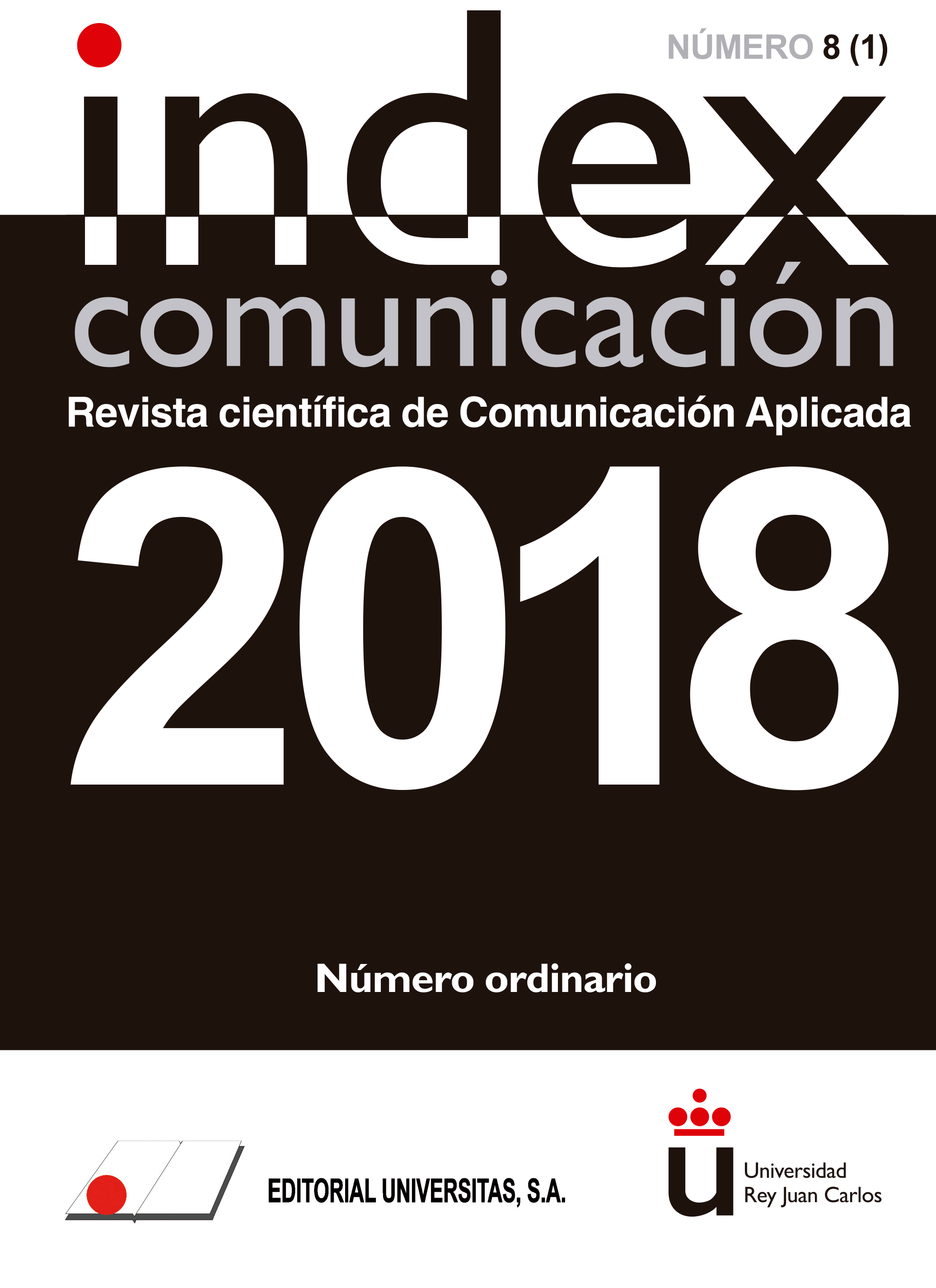Views on Argentina’s democratic transition. An analysis of the documentary film ‘Panteón militar’ (Wolfgang Landgraeber, 1992)
Keywords:
Argentina, transition to democracy, dictatorship, documentary,Abstract
The present article addresses the documentary film Kreuzzuggegen die Subversion / Panteón militar (Wolgang Landgraeber, 1992) with the aim of studying the mode in which the Argentinean society is portrayed in its transition towards democracy. The analysis articulates a transdisciplinary methodological perspective that integrates elements deriving from the history of communication media, the sociology of culture and discourse analysis. In particular, the analysis focuses on the filmic treatment of the problematic of human rights and the statute of limitation on judicial trials concerning crimes against humanity committed by the military during the last dictatorship (1976-1983). This work will argue that, together with the disappointment around these laws and, more generally, the regressive policies in matters of human rights, the crisis of expectation is also the result of the economic factor.
Metrics
References
Acuña, C. y Smulovitz, C. (1995). Militares en la transición argentina: del gobierno a la subordinación constitucional, en VVAA: Juicio, castigos y memorias. Derechos humanos y justicia en la política argentina, pp. 19-99. Buenos Aires: Nueva Visión.
Aguilar, G. (2015). Más allá del pueblo. Imágenes, indicios y políticas del cine.Buenos Aires: Fondo de Cultura Económica.
Aprea, G. (2015). Documental, testimonios y memorias. Miradas sobre el pasado militante. Buenos Aires: Manantial.
Campo, J. (2014). Batallas estéticas reales: Tendencias formales y temáticas en el cine documental político argentino (1968-1989), tesis doctoral no publicada. Buenos Aires: Universidad de Buenos Aires.
Canelo, P. (2006). La descomposición del poder militar en la Argentina. Las Fuerzas Armadas durante las presidencias de Galtieri, Bignone y Alfonsín (1981-1987), en Pucciarelli, A. (coord.). Los años de Alfonsín: ¿El poder de la democracia o la democracia del poder?, pp. 65-114. Buenos Aires: Siglo Veintiuno Editores.
Crenzel, E. (2008). La historia política del Nunca más. La memoria de las desapariciones en la Argentina. Buenos Aires: Siglo Veintiuno Editores.
Felman, S. (1995). Education and Crisis, en Caruth, C. (ed.). Trauma: Explorations in Memory, pp. 13-60. Baltimore: The Johns Hopkins University Press.
Longoni, A. (2010). Arte y política. Políticas visuales del movimiento de derechos humanos desde la última dictadura: fotos, siluetas y escraches. Aletheia, 1(1), 1-23. Facultad de Humanidades y Ciencias de la Educación, Universidad Nacional de La Plata.
Margulis, P. (2017). Thinking transition ‘from the outside’: An analysis of the film De l’Argentine by Werner Schroeter. Journal of Latin American Cultural Studies, 3(26), 393-408. Julio 2017.
Markarian, V. (2004). De la lógica revolucionaria a las razones humanitarias: la izquierda uruguaya en el exilio y las redes transnacionales de derechos humanos (1972-1976). Cuadernos del Claeh, 89, 85-108. Año 27, Montevideo.
Massuh, G. y Guarini, C. (1990). Medios del Norte. Imágenes del sur. Primer encuentro argentino-alemán sobre producción, distribución, coproducción y fomento del cine documental. Buenos Aires: Goethe Institut Buenos Aires.
Metz, C. (1974). La gran sintagmática del film narrativo, en AAVV: Análisis estructural del relato, pp. 147-153. Buenos Aires: Tiempo Contemporáneo.
Piedras, P. (2012). La regla y la excepción: figuraciones de la subjetividad autoral en documentales argentinos de los ochenta y noventa. Toma Uno, 1. Facultad de Artes, Universidad Nacional de Córdoba.
Portantiero, J. C. (1987). La transición entre la confrontación y el acuerdo, en Nun, J. y Portantiero, J. C. (eds.). Ensayos sobre la transición democrática en la Argentina, pp. 257-293. Buenos Aires: Punto Sur.
Pucciarelli, A. (2006). La República no tiene Ejército. El poder gubernamental y la movilización popular durante el levantamiento militar de Semana Santa, en Pucciarelli A. (coord.). Los años de Alfonsín: ¿El poder de la democracia o la democracia del poder?, pp. 115-151. Buenos Aires: Siglo Veintiuno Editores.
Ros, A. (2012). The Post-Dictatorship Generation in Argentina, Chile, and Uruguay. Nueva York: Palgrave Macmillan.
Schwarzböck, S. (2016). Los espantos. Estética y postdictadura. Buenos Aires, Cuarenta Ríos.
Traverso, A. (2010). Dictatorship memories: Working through trauma in Chilean post-dictatorship documentary. Continuum: Journal of Media & Cultural Studies, 1(24), 179-191.
Published
How to Cite
Issue
Section
License
Authors who submit to this journal agree to the following terms:
Authors retain copyright and ensure the magazine's right to be the first publication of the work as licensed under a Creative Commons Attribution-NoComercial 4.0 International License that allows others to share the work with an acknowledgment of authorship of the work and the initial publication in this magazine, with no commercial purpose.
Authors can establish separate additional agreements for non-exclusive distribution of the version of the work published in the magazine (for example, to an institutional repository or publish it in a book), with an acknowledgment of its initial publication in this journal.
It allows and authors are encouraged to disseminate their work electronically (eg, in institutional repositories or on their own website) prior to and during the submission process, as it can lead to productive exchanges, as well as a citation more early and most of the published work (See The Effect of Open Access).















